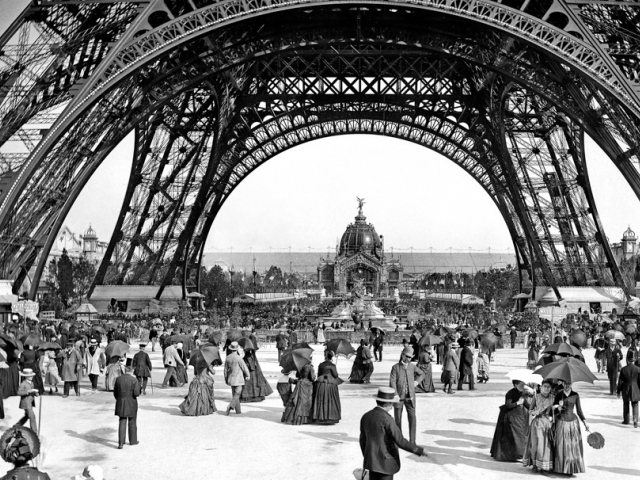
Construction of Eiffel Tower
The Eiffel Tower was built to become one of the main attractions at the Paris World's Fair in 1889. Back then, the World's Fair was devoted to the great industrial advancement of that time. Before the event, the French authorities looked through 107 projects of various structures. An ambitious project presented by French engineer Gustave Eiffel and his team perfectly matched the theme of the exhibition. When the project came to being, Eiffel and his engineers decided to erect a 300-meter tower made of iron pylons. The puddle iron makes up the Eiffel Tower's structure. According to the plan, the massive lattice-girder piers of the tower were supposed to taper inward to form a single large vertical tower.
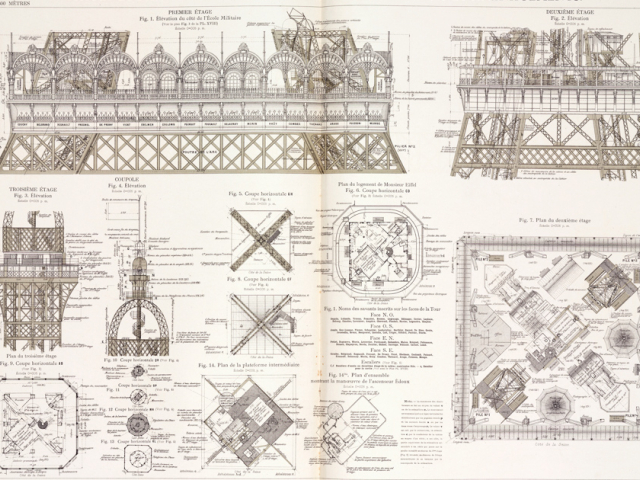
Iron Lady faces skepticism
During the construction, the architect had to deal with sharp criticism from the government and ordinary citizens. At the end of the 19th century, people were outraged by the project, considering it unacceptable. For this reason, the authorities of Paris planned to dismantle the object after the exhibition. Notably, before the work began, Eiffel agreed with the officials that the tower would be demolished in 25 years. Even the artistic bohemia and top architects voiced concerns in a letter entitled "Artists Against Mr. Eiffel’s Tower". Newspapers were full of harsh and sarcastic comments about the tower. However, criticism did not prevent the engineer from carrying out his project. At the exhibition, the monument was met immediately with tremendous success. The tower brought Eifel international fame and cemented his name in history.
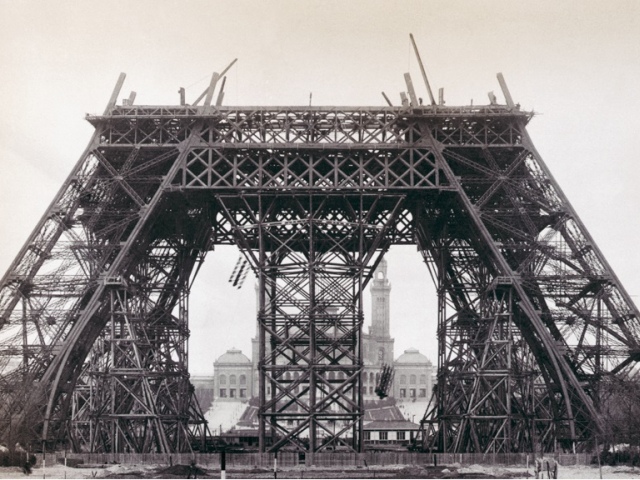
Becoming symbol of France
The construction work of the Eiffel Tower began in January 1887. Around 300 engineers were involved in the creation of the stone foundation. Wrought-iron lattice columns were installed on a solid foundation. The first stage of construction was completed in five months, whereas the second one lasted about 22 months. At this stage, builders slowly but surely installed iron columns. All the elements were made in advance in Eiffel’s factory in Levallois-Perret. Metal pieces are held together by rivets, a well-refined method of construction. They provided strength to the structure.
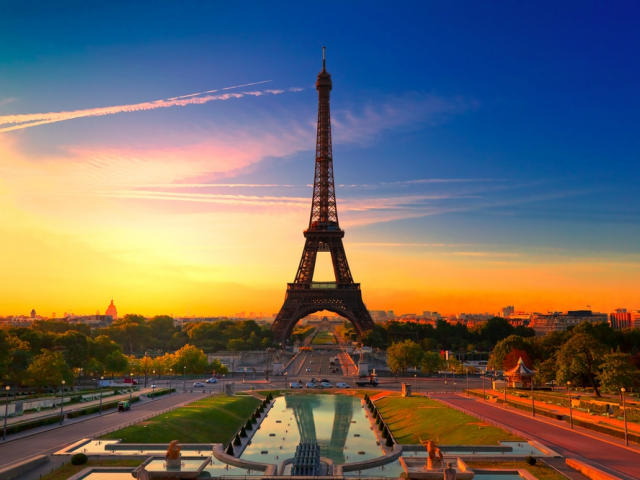
One of most recognizable attractions
In April 1888, the builders finished the first level of the tower. This stage was considered the most difficult as the solidity of the entire structure relied on the level of inclination of the lower floor. A few months later, the construction of the next levels began. Creeper cranes that moved up the tower as construction progressed were used as lifting devices. After a while, lifts were installed. Construction work was completed at the end of March 1889 just a few months before the World's Fair. 2.5 million rivets, 7,300 tons of cast iron, and 60 tons of paint were used for the erection of the Eiffel Tower. During the construction of the structure which lasted for two years, engineers paid great attention to security measures. As a result, the tower gained wide popularity. For its construction, Eiffel was awarded the Legion of Honor medal, the highest accolade in France. It is also a symbol of recognition of special merits. Nowadays, the Eiffel Tower is one of the most visited architectural landmarks in the country.
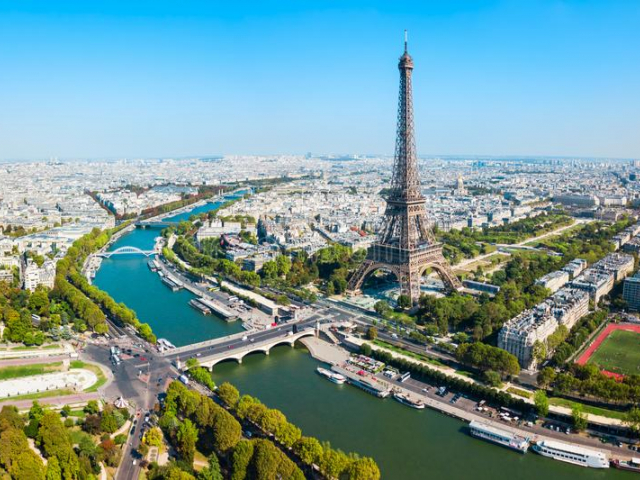
May long live Tower
After the World’s Fair where France fully demonstrated its technological progress, the Paris authorities planned to dismantle the Eiffel Tower. Significant pressure was exerted by negative reviews in the media and among the public. Despite the wide popularity of the Eiffel Tower, high-minded critics in France attacked the Eiffel Tower as it was being built, coming up with the most excruciating insults. At the design stage, the creators were accused of the inelegance of the shape and later of its absurdity and inappropriate location. Caricature images of Eiffel and sarcastic poems were circulating in the media. Nonetheless, the Eiffel Tower was born, blinding critics with the brilliance of its fame. According to analysts, the tower narrowly escaped being dismantled as its use as a giant radio antenna saved it from destruction in 1908. The new radio antenna, capable of transmitting a signal for 6,000 km, helped the French authorities considerably during the First World War. The structure became a key point for intercepting messages about the offensive of German soldiers. During the Second World War, the tower remained a symbol of the resilience of the French.
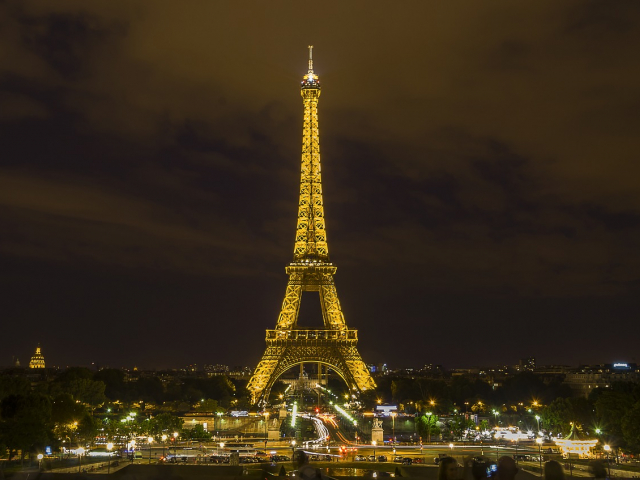
Eiffel Tower at night
In the evening, the Eiffel Tower is among the most magical places to visit in Paris. A cozy and romantic atmosphere surrounds it. The structure flashes with thousands of lights. After dark, 336 floodlights with high-pressure lamps light upon the tower. From time to time they are replaced by more technologically advanced energy-saving lamps. The lighting of the tower started working in 1985. Usually, the Eiffel Tower is adorned with its golden covering. Notably, the lights on the tower change depending on what is happening. For example, every October, the Eiffel Tower lights up pink for the start of Breast Cancer Awareness Month. It helps increase awareness of the disease and raise funds for cancer research. In 2016, during the European Football Championship, an illumination appeared on the Eiffel Tower in the form of flags of the participating countries of the event.
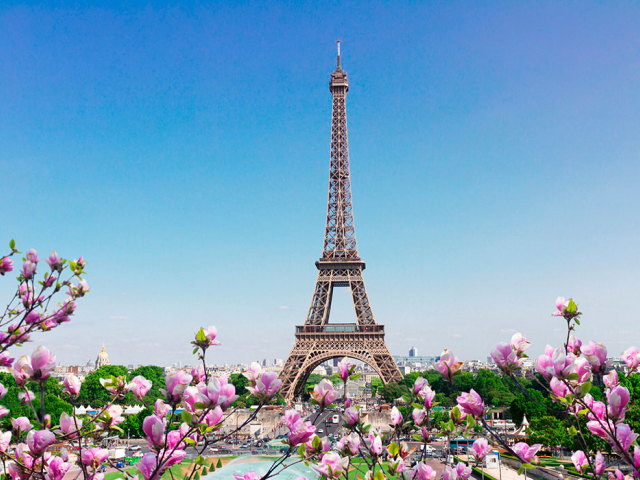
Paris not Paris without Tower
The Eiffel Tower is a symbol of France and Paris. It is one of the most popular attractions in the world. More than 6 million tourists visit it annually. During the pandemic in 2020, only 1.16 million tourists came to see the tower as only limited numbers of people were allowed. Visitors can go up to different levels of the tower, enjoy panoramic views of the city, and dine at the restaurant. The most expensive ticket is €26.1. One can save money by moving between levels by stairs, not by lifts. The Eiffel Tower is the favorite place for those who want to take memorable photos. Tourists "hold" it in the palm of their hand, try to grab the top, or look for good angles all over Paris for taking great pictures.
 English
English 
 Русский
Русский Bahasa Indonesia
Bahasa Indonesia Bahasa Malay
Bahasa Malay ไทย
ไทย Español
Español Deutsch
Deutsch Български
Български Français
Français Tiếng Việt
Tiếng Việt 中文
中文 বাংলা
বাংলা हिन्दी
हिन्दी Čeština
Čeština Українська
Українська Română
Română
